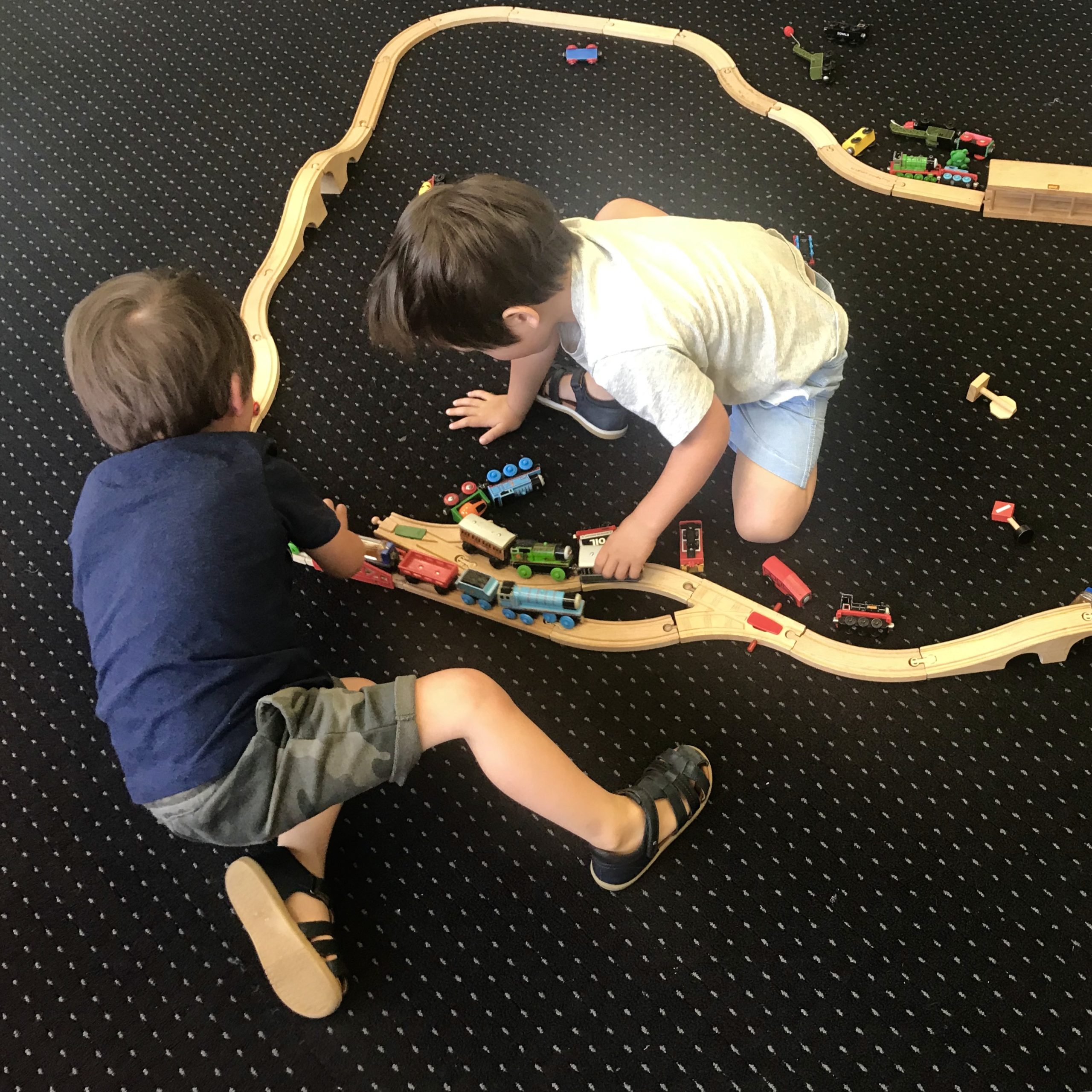
How do children learn to talk?
Let’s look at Help Your Child Talk – Tip #3. Children learn to talk by hearing other people talk. They hear all the people all around them talk. This process of listening to other people talk starts from the day they are born. Their little brains are hard wired to take in sounds and words from the very beginning.
Children, from babies to pre-schoolers, learn language from the people around them. They learn language from the people they spend the most time with. This is usually the parent. However, it can be siblings, grandparents, even nannies and day care workers.
When children need some help learning to talk then the people they spend the most time with are the ideal people to do this. They can learn strategies from Speech Pathology sessions and apply these strategies to everyday activities. One session of Speech Pathology each week isn’t enough to make the changes your child needs. However, integrating suggestions from the Speech Pathologist across the whole day will! Children constantly listen, analyse, and storing the sounds and words they hear until they start to use it!
What is the strategy for “Help your Child Talk – Tip #3 at home
Eliminate the distractions
There are so many distractions today and some many things that encourage attention to many things at once, or attention for brief periods of time. Children learn best when both of you are completely focused on the one thing.
When you play with your child or read a book, you want their focus to be completely on you. Once you start playing or reading, you don’t want all of your effort to be lost when a distraction disrupts everything. It’s also important that your focus is completely on them.
How do I eliminate distractions?
Eliminate toys immediately around the child.
Put all the toys away. Include your child in on packing away toys. It is a great opportunity to work on following instructions. Some children like a toy at story time and that ok if that toy doesn’t take your child’s attention.
Don’t have too many toys or books out at the one time.
It works best if there is only one item to focus on at a time. You can get another toy or choose another book, but don’t have too many out at the one time.
Turn off TV, music and radios.
This background noise simply comperes with what you are saying. Some children find it very hard to tune out background noise. They can’t focus always process what your are saying while there is something else happening in the background.
Put mobile phones on silent for now and put away the iPads.
Young children are very attuned to mobile phones these days. When it rings, the phone nearly always takes their attention away from whatever they are doing.
Keep your eyes and focus on the interaction with your child.
Research shows that the quality of language and social interaction is much higher when the parent or carer is concentrating only on the child.
Position yourself opposite your child – not next to them.
It is much easier to keep your child’s attention when you sit opposite them. Their focus is on you and not things around them. They can read your emotions and watch you as you talk.
Don’t talk to other people in the household.
If your spouse has a habit of interrupting you when you are playing or talking, then tell them before you start playing not to do this. They can join the play instead!
Include siblings in the play and reading wherever possible.
However, if they are very little, sick or just in. abad mood then have your spouse look after the other child. If you don’t have another pair of hands available to help them pick the times that are more likely to be successful.
When do I use these strategies?
Use these strategies from the moment your child is born. Children are very aware of the level of engagement of their parents. They will be more engaged in the activity if you set the scene so that distractions are eliminated.
For more tips on helping your child learn to talk….
Tip Number 2 – slow down and wait
What should I do if my child still isn’t talking?
We’re here to support you
At OneOnOne Children’s Therapy, we believe that every child deserves the opportunity to grow and thrive.
Our clinics are not just a space for therapy – it’s a place where children can discover their strengths, overcome challenges, and reach their full potential.
By combining innovative therapy techniques with a stimulating and supportive environment, we’re proud to offer a holistic approach to paediatric therapy and early intervention that addresses the unique needs of each child we support.
Reach out for support
If you’re concerned about your child’s development or want to learn more about how our Speech Pathology program can help your child, OneOnOne Children’s Therapy is here to help.
Call our Bondi Junction and Mascot clinics on (02) 80657837 or email. You can book a free 30 minute phone call with us to discuss how we can support your child’s unique journey
